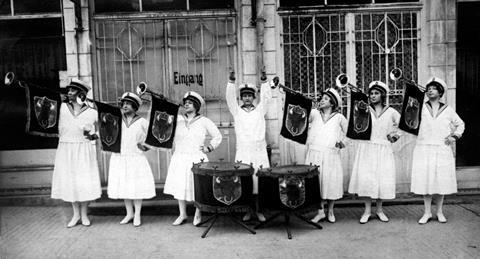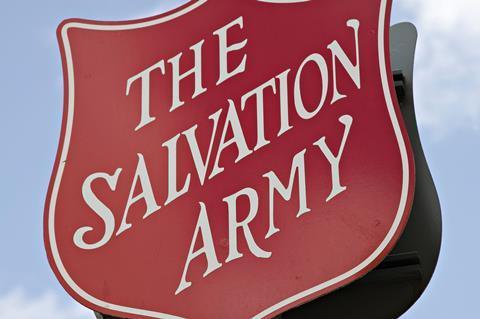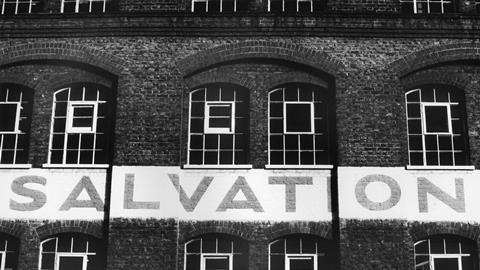As this well-respected, global organisation turns 160, our deputy editor, Jemimah Wright, considers its impact, particularly for women
When I was at university, I wrote my dissertation on Religious Tract Publishing during the Industrial Revolution…it was far more interesting than it might sound! That research introduced me to one of the unexpected heroes of 19th-century social change: The Salvation Army.
This radical Christian movement didn’t just distribute religious tracts in the slums of Victorian Britain, but served hot meals, offered safe shelter and brought hope to people who found themselves at their lowest. Founded by William and Catherine Booth in 1865, The Salvation Army modelled a faith that rolled up its sleeves.
Years later, I lived for four years on the World’s End Estate, a council estate in Chelsea, London. There, I saw The Salvation Army up close, as they had a church on Blantyre Street nearby. Their uniforms and military-style ranks may strike some as old-fashioned, yet their work is anything but. From family support and food relief to youth programmes and after-school activities, their presence was tangible. They offered counselling, both individual and group, for emotional, relational and spiritual needs. Although I didn’t have any interaction with them, I believe their presence was a gift to the community.

A legacy for women
In 2025, as The Salvation Army marks its 160th anniversary, its mission remains unchanged: rolled-up sleeves, brass bands and fearless compassion. At its heart lies a bold legacy of elevating women, thanks largely to the remarkable Catherine Booth.
While William Booth is often remembered as the fiery preacher, Catherine was arguably the theological and visionary backbone of the movement. Born in 1829 into a devout Methodist family, she was intelligent, compassionate and unafraid to challenge injustice. At a time when respectable women were expected to remain silent, Catherine believed the gospel called her to speak, so she did.
In the 1860s, despite resistance from church leadership, she began preaching. She wrote the pamphlet Female Ministry: Or, Woman’s Right to Preach the Gospel, dismantling arguments against women speaking in public about faith. In it, she famously declared: “If the Word of God were to be universally obeyed, the world would be converted in a very short time, and no agency is better adapted for that work than the lips of devoted women.”
Catherine didn’t just claim her own calling, she opened the door for thousands of others. By the late 19th century, over half of The Salvation Army’s officers were women, a staggering statistic for Victorian Britain.
In 1884, Florence Booth, Catherine’s daughter-in-law, became the first leader of The Salvation Army’s women’s social work. She founded rescue homes in London’s East End; safe places for prostitutes, homeless girls and single mothers. These homes offered food, shelter and compassion when few others would.
That same commitment to women’s leadership was embedded in The Salvation Army’s DNA from the beginning. In 1870, the Christian Mission (the original name for what would become The Salvation Army) formally guaranteed full ministerial rights for women. Throughout the 20th century, leaders like Elizabeth Cotterill, Caroline Reynolds, Polly Margetts and Catherine Booth’s granddaughter – Catherine Bramwell-Booth – carried that legacy forward, pioneering social services and officer training that impacted thousands.

An ongoing influence
Today, that same spirit lives on in women like Danielle Strickland, Canadian author, speaker and former Salvation Army officer. For over two decades, Danielle served in some of the toughest environments, from inner-city slums and addiction recovery centres to anti-human trafficking initiatives. Her life is a modern echo of the Booths’ vision: bold, practical faith in action.
The influence of The Salvation Army ripples through generations in quiet but powerful ways. Mia Fieldes, the Australian worship leader we interviewed for the May 2025 issue of Woman Alive, named her daughter Booth in honour of William and Catherine. In an interview, she explained: “Booth is named after these generals of the faith…who essentially changed Christianity through courage, generosity and living out their faith.”
When Mia was a child, her mother, a single parent of triplets, found herself living in a car, with nowhere to turn. As a family, they were supported for many years by The Salvation Army, through food parcels, vouchers and Christmas gifts.
The Salvation Army modelled a faith that rolled up its sleeves
Mia spoke to The Salvation Army in Australia saying: “We were always at a disadvantage, because not only did my mum have substance abuse problems and alcohol problems [at the time], but she didn’t have to provide for just one — it was always three — three birthdays, three at Christmas, three for school events. We missed out on so many school excursions and trips because my mum just couldn’t afford it.”
She says: “Honestly, waking up on Christmas morning to have a gift there that my mum (or Santa) would get the credit for, was just beautiful. Because of the kindness of others, we would wake up and think, ‘Santa hasn’t forgotten. I’m remembered like every other kid.’”
Present-day stories like Mia’s aren’t rare. Actor and presenter, James Corden has spoken about The Salvation Army’s impact. In his autobiography, he shares how his parents’ long-standing involvement, his father playing in the corps band, his mother serving the vulnerable, shaped his understanding of quiet, consistent faith. He writes that his dad’s prayers once helped him through a deeply difficult time.
Catherine Booth once said: “If we are to better the future, we must disturb the present.” She refused to accept the limits placed on her gender and lived out a faith that challenged comfort zones. In a world where women still face barriers – in churches, workplaces and even their own minds – Catherine’s life reminds us that our voices matter.
One hundred and sixty years ago, the Booths stepped up in a time of upheaval. Their Army still stands today, rolled-up sleeves and open hearts, proving that every generation needs people willing to stand in the gap.
May we, too, disturb the present for the sake of the future.
If you would like to volunteer with The Salvation Army, please visit salvationarmy.org.uk/volunteer


































No comments yet